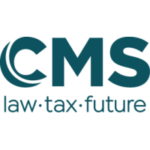-
Does your jurisdiction have a class action or collective redress mechanism? If so, please describe the mechanism and outline the principal sources of law and regulation and its overarching impact on the conduct of class actions in your jurisdiction.
Yes. A formal mechanism for class actions (known as “group proceedings”) was introduced by Part 4 of the Civil Litigation (Expenses and Group Proceedings) (Scotland) Act 2018 (the “2018 Act”). The relevant provisions of the 2018 Act came into force on 31 July 2020 so it is a relatively new procedure with evolving jurisprudence. There is, as yet, no example of a group proceedings case that has progressed through all stages of the process and there remains some uncertainty as to how the procedure will evolve.
The mechanism
Group proceedings may be raised in the Court of Session (Scotland’s supreme civil court) and the legislative framework can apply to a wide range of different claim types. Other than setting down a few key requirements, the 2018 Act is facilitative in nature and leaves much of the implementation of the procedure to the Rules of the Court of Session (“RCS”). The individual claims in the group must raise issues of either fact or law which are “the same as, or similar or related to, each other”. Within the RCS, Chapter 26A sets out the procedural requirements for group proceedings. It should be read in conjunction with Practice Note No.2 of 2020 on Group Proceedings under Chapter 26A.
There is recent discussion of group procedure (including the origins of the Scottish rules) in the case of Joseph Mackay v Nissan Motor Co Ltd and Others [2025] CSIH 14. The RCS provides a broad framework of rules which allows for significant flexibility in the interpretation and application of the procedure by the court. The impact of this is that the judiciary (through ongoing judicial decisions), and practitioners, are still developing their understanding of how group procedure will apply in practice. It is not yet clear how individual group members will have their claims judicially determined (including, for example, whether and how individual damages assessments will be conducted and made enforceable).
The 2018 Act enables the RCS to provide for both opt-in and opt-out proceedings (the latter only for those who are domiciled in Scotland). Only opt-in proceedings have been introduced by the RCS at the time of writing. However, the introduction of opt-out proceedings would now require only amended court rules (likely after a consultation period). Given that it already has the legislative authority to do so, Scotland could be the first UK jurisdiction with a general right to opt-out class actions. Section 23 of the 2018 Act requires the Scottish Ministers to review the operation of group procedure as soon as practicable after the end of five years from its commencement (i.e. after 31 July 2025) so it may be that opt-out procedure is considered as part of that statutory review. In recently published minutes from a meeting of the Scottish Civil Justice Council (“SCJC”) on 31 March 2025, it is noted that “Group Proceedings Part 2 (opt out procedure)” is a priority area for rule change reform as part of their 2025/2026 work programme.
Representative Party
Group proceedings are initiated by a “representative party” who brings the action on behalf of two or more persons, each having a separate claim in the group proceedings. There can only be one representative party for the group; it may be one of the group members (pursuers/claimants) or alternatively an unconnected party such as a trade union or consumer group. The early judicial consideration of the rules has involved discussion on the criteria and requirements for a representative party. The current position is set out in the Joseph Mackay v Nissan Motor Co Ltd and Others [2025] CSIH 14 and Steven Milligan v Jaguar Land Rover Automotive Plc and Others [2025] CSIH 16 decisions, with the application of the test in that case focusing on the absence of factors indicating unsuitability for the role, rather than positive factors which required to be met. It was sufficient in those cases that the applicant was an ordinary and willing member of the group of claimants [82].
Procedurally, two initial applications require to be presented to the court: (i) for the authorisation of the proposed representative; and (ii) for permission to bring the group proceedings. These can be progressed together or sequentially. [See also answer to question 17 below].
Other collective redress regimes/case management options
Scotland also has a formal class action mechanism by way of the collective proceedings procedure in the Competition Appeal Tribunal (“CAT”) which has UK-wide jurisdiction. Prior to 31 July 2020, this was the only formal class action mechanism in the jurisdiction.
In non-competition law matters, multi-party litigation initiated prior to July 2020 was generally managed by way of a more informal process. This required individual proceedings by each claimant. The court might then identify one ‘lead case’ to proceed, with the other similar cases sisted (stayed) pending the outcome of the lead case. The courts could make use of existing procedural tools to assist with case management and sometimes issued tailored Practice Directions for particular groups of actions to achieve a procedure better able to accommodate the multiple related claims, subject to the Practice Direction in question. It is unclear whether the approach of using lead cases and Practice Directions would be available to pursuers (claimants) since the introduction of formal group procedure. However, the option of raising individual claims with case management to achieve a procedure cognisant of the multiple parties and common or related issues remains a current option for case managing multi-party actions in Scotland.
In practice, it remains to be seen whether some low volume multi-party proceedings may still be raised in this manner, or whether the court would direct, or at least encourage, parties to use the group procedure instead. There could also be cases where it has not been demonstrated that it would be more efficient for the administration of justice for claims to be brought as group proceedings rather than by separate individual proceedings in terms of RCS 26A.11(5)(c). Proceeding in this way would require a separate action for each claimant.
For completeness, it is noted that there is also the option to formally conjoin cases which have been raised/run separately prior to that point. Parties need not be the same, but actions should only be conjoined when the different actions raise the same issue, and the determination of that issue will settle all of the actions.
Overarching impact of Scotland’s new group procedure
The introduction of group procedure has involved a relatively slow adoption of the process as a more formalised multi-party procedure in Scotland. Over the five years since its introduction, practitioners and the judiciary are becoming increasingly familiar with the process and with the application of specific rules as cases proceed and judgments (with procedural clarifications) are issued. That adoption has accelerated more quickly with the diesel emissions cases where several group proceedings have been raised against a number of car manufacturers and which, in turn, is accelerating the testing and interpretation of the RCS.
Although claimants and their advisers are likely to be more enthusiastic about the group procedure than defenders, we suggest that it is generally acknowledged by practitioners and stakeholders that group/collective proceedings are a necessary tool in the civil procedure rules to facilitate access to justice in appropriate circumstances. However, it also appears to be generally recognised that further experience, understanding and adjustment of the procedure is required to achieve a better defined and effective process. Groups have not yet progressed through the full procedural cycle and more experience and judicial interpretation is necessary. The SCJC recognises the need for review of, and reflection on, Chapter 26A of RCS and related Practice Note (No.2 of 2020) this year; the fifth anniversary of their introduction. .We have not yet seen whether, and to what extent, the introduction of group procedure might alter the litigation risk for businesses in Scotland. Multi-million-pound claims are, and have for some time, been a risk and this is unlikely to change significantly with opt-in group proceedings.
-
What is the history of the development of the class actions/collective redress mechanism and its policy basis in your jurisdiction?
Prior to Part 4 of the 2018 Act coming into force in July 2020, discussions regarding class actions in Scotland had been ongoing for a considerable time. In 1979 the Scottish Consumer Council set up a working party which recommended the introduction of formal procedures for class actions and canvassed proposals to introduce representative actions, particularly by consumer group bodies. The issue continued to raise its head and some years later, the Scottish Law Commission issued its Report on Multi-Party Actions in 1996 and thereafter Rt Hon Lord Gill’s Report of the Scottish Civil Courts Review was published in 2009 (“the Gill Review”). Both of these reports concluded that the existing informal mechanisms were inadequate and that a procedure for multi‐party actions would be a useful addition to the range of available procedures in Scotland. Similar discussions were ongoing in England and Wales around the same, notably in Lord Woolf’s Access to Justice Report of 1996. These discussions were in large part brought about by a need to improve the experience of dealing with multiple similar claims as separate actions.
Against this background, various policy choices have been debated as to how, and to what extent, collective actions should be facilitated in Scotland. The policy options considered ranged from more restrained opt-in procedures, requiring group members to actively consent to the proceedings and generally with individualised claims and damages calculations, to the more expansive opt-out mechanisms where representatives bring claims on behalf of all potential claimants unless they actively opt out.
There are trade-offs with both approaches and policy choices. The main policy concerns around opt-out mechanisms are: an increase in litigation and legal costs; the uncertainty in calculating damages without individualisation or, potentially, knowledge of the size of the class; the potential to fuel a ‘compensation culture’; and potential abuses of opt-out systems where unmeritorious claims are brought.
When the Civil Litigation (Expenses and Group Proceedings) (Scotland) Bill was first introduced in Parliament in 2017 it initially provided only for opt-in procedure. In the first debate of the Bill in January 2018, the issue of whether opt-out proceedings should be included was a matter of contention. The opt-out approach was spearheaded by Liam McArthur MSP, who in particular relied on arguments put forward by consumer group Which? relating to matters such as increased access to justice. It was ultimately felt there was an opportunity to introduce a mechanism that embeds the opt-in model but leaves the option open to the courts to decide on an opt-out mechanism in the future. After the 2018 Act was passed, a working group on group proceedings was established within the SCJC, the body responsible for drafting court rules. It is understood the SCJC considered it necessary to produce new rules in 2020 (likely due to the Volkswagen diesel emissions litigation which was waiting in the wings at that time and facing prescription issues) and a decision was therefore taken, in light of practical and procedural aspects, to begin with an opt-in system with which more stakeholders would be familiar.
Within the UK, we do have one forum which already has an operational legislative opt-out procedure. In 2015, the UK introduced by way of Schedule 8 to the Consumer Rights Act 2015 an opt-out procedure for competition claims before the CAT. The operation of the procedure was clarified in 2020 following the decision in the £14 billion opt-out claim being advanced against Mastercard on behalf of a purported 45.5 million individuals [Merricks v Mastercard Incorporated and others [2024] CAT 14] and there have been a number of opt-out claims brought following this. The experience of opt-out competition claims before the CAT is likely to inform, at least to some degree, whether Scotland will proceed to adopt an opt-out procedure in the future.
-
What is the frequency of class actions brought in your jurisdiction, in terms of number of cases over the years and/or comparison to other types of litigation?
Aside from the diesel emissions cases which have made up the bulk of Scotland’s group proceedings to date, there have only been a handful of other group proceedings commenced since the procedure was introduced in July 2020. Whilst not split entirely evenly over this period, an average of two new group proceedings per year is a reasonable estimate.
Looking to the future, we predict that this number is likely to increase. This may in part be due to the new procedure, which provides a significant simplification of running high volume litigation for claimant law firms. However, it may also be due to the nature of the proceedings being raised, particularly for product liability claims impacting whole industries (for example, the diesel emissions cases) where proceedings tend to run in waves and against different manufacturers at different times. Data and technology related claims and ESG claims are likely to also see an increase. Collective claims in England will often involve parallel proceedings in Scotland. The trends in Scotland are likely to mirror developments in England.
Whilst reflective of the relatively small size of the jurisdiction, annual numbers in a ballpark of, for example, between two and five new group proceedings each year is still significantly lower than other claim types in the Court of Session. For example, the most recent statistics available from the Scottish Courts and Tribunal Service project new commercial actions for financial year 2024/2025 at 137 per year and for new damages cases at 104 per year. The number of underlying claims in any given group proceedings case may be significant, but that data is not currently captured by the Scottish Courts and Tribunal Service.
-
Are there certain courts or types of claims that are most prevalent (for example competition vs commercial litigation generally)?
The most common types of claims have been in the consumer protection and product liability sphere. As well as consumer claimants, there have also been claims raised by mass groups of current and former employees [The James Finlay (Kenya) Ltd Group Proceedings COSGP1-22] and historic abuse victims [Celtic PLC Group Proceedings COS-GP2-22]. Apart from group proceedings raised by a group of housing authorities in connection with alleged defective construction, the cases to date have not tended to involve a typical commercial litigation subject matter. In recent years, there has also been competition law damages cases involving Scotland/Scottish claimants which have been run in the UK-wide CAT.
-
What is the definition of 'class action' or 'collective redress' relevant to your jurisdiction?
The scope of group proceedings is defined in section 20(6) of the 2018 Act. The court may only give permission for group procedure if it considers that “all claims made in the proceedings raise issues (whether of fact or law) which are the same as, or similar or related to, each other”. Given the relatively recent introduction of group proceedings, there is limited guidance on how the courts will interpret this requirement although experience to date suggests a permissive approach. Scotland has seen only a handful of decisions on this requirement so far. The most detailed consideration to date can be found in The James Finlay (Kenya) Ltd Group Proceedings where a group of Kenyan tea pickers has been permitted to advance group proceedings in respect of musculoskeletal injury arising from their employment ([2022] CSIH 29 and [2022] CSOH 12).
It had been anticipated that the Scottish courts may have looked to how the courts of England and Wales interpret the similar test for Group Litigation Orders (“GLOs”). However, one of the diesel emissions judgments [Bridgehouse v Bayerische Motoren Werke Aktiengesellschaft [2024] CSOH 2] has stated that English GLO procedure is not a good guide as to how the court will deal with group proceedings in Scotland [19]. In particular, the court in that case observed that the English practice of ascertaining “common issues” is not relevant in Scotland; in English procedure each claimant has an individual claim whereas in Scotland there is only one action, brought on behalf of all the group members [70]. Overall, from the cases to date, it seems unlikely that the court will apply a narrow interpretation and is expected to continue to adopt a pragmatic approach.
-
What are the general 'triggers' for commencement of a class action or collective redress in your jurisdiction from a factual perspective?
Group proceedings in Scotland can be commenced in circumstances where there is a group of claimants with claims that raise issues of fact and law which are “the same as, or similar or related to, each other”. Although there is a limited pool of cases from which to identify common triggers to date, from our experience and looking to the future, we expect the following to be key themes: product liability; personal injury; environmental and nuisance; mis-selling of products/services; and crimes with multiple victims (e.g. fraud, abuse).
While there is no fixed minimum number of claims beyond two, there is a requirement for it to be demonstrated to be more efficient for the administration of justice for claims to be brought as group proceedings rather than by separate individual proceedings [RCS 26A.11(5)(c)]. It is unlikely that the court will allow group proceedings unless there are a significant number of claims.
-
How do class actions or collective redress proceedings typically interact with regulatory enforcement findings? e.g. competition or financial regulators?
Findings by regulators can be used as a basis for commencing group proceedings but their findings are not binding on the court. The court will require to make its own findings in fact and law.
With respect to competition law, where the Competition and Markets Authority finds that entities have breached said law, its findings will often spark and form the basis of Collective Proceedings Orders (“CPOs”) brought before the CAT by claimants affected by the relevant infringement and seeking follow-on damages.
-
What types of conduct and causes of action can be relied upon as the basis for a class action or collective redress mechanism?
There is no limit to the type of conduct or causes of action that can be relied upon as the basis for group proceedings in Scotland.
Where claims raise the same, similar or related issues of law or fact they can be brought together under the group proceedings mechanism.
-
Are there any limitations of types of claims that may be brought on a collective basis?
There are no limits to the types of civil claims that can be brought on a collective basis in the Court of Session. From the cases to date, the Court of Session has adopted a permissive approach to the initial certification stage of proceedings (as set out in question 17 below). It remains to be seen how these cases fare on substantive legal aspects and how matters are ultimately determined from a practical and procedural perspective.
It is also mentioned that the CAT has UK-wide jurisdiction over matters relating to breaches of competition law. The CAT has the power to make CPOs. The granting of a CPO allows the claim to proceed as collective proceedings, permitting a class representative to bring a claim on behalf of a group of claimants against a company for breaches of competition law.
The CAT has adopted a permissive stance in regard to what cases it considers as falling within the realm of competition law and thus their jurisdiction. In a series of proceedings brought by Professor Carolyn Roberts against a number of English water utilities, Professor Roberts claimed that the water companies’ under-reporting of the number of pollution events to regulators amounted to an abuse of their dominant positions and led to higher prices for consumers. While the CAT refused to certify Professor Roberts’ claims on technical legislative grounds, it confirmed that had the claims not been excluded for this reason, it would have certified them and granted the requested CPOs. This is one of several examples of the CAT showing its willingness to approve proceedings which could be considered outside the bounds of traditional competition law, thereby widening the overall scope of opt-out proceedings in the UK.
-
Who may bring class action or collective redress proceeding? (e.g. qualified entities, consumers etc)
Group proceedings in the Court of Session must be brought by two or more group members. These may be natural or legal persons. The group is led by a representative party. The RCS set out the procedure for appointing a representative party. [See also the answer to question 17 below].
At the outset, there must be an application made to the court to appoint the representative party and another application seeking permission from the court to proceed by way of group proceedings.
The court will consider whether the applicant is suitable to be a representative party. Factors the court will take into account include: the expertise of the applicant; the applicant’s own interests in the proceedings; demonstration that the applicant would act fairly and adequately in the interests of the group; demonstration of competence by the applicant to litigate the claims properly; and confirmation that the applicant is independent from the defender(s). [Rule of Court 26A.7(1)]
An application for a CPO in the CAT must be brought by a proposed class representative. In considering the granting of the CPO, the CAT must be satisfied that it is just and reasonable for the applicant to act as the class representative. Some of the factors that the CAT will take into consideration include: whether the applicant would fairly and adequately act in the interests of the class members; whether the applicant has any conflicts with the interests of the class members; and whether the applicant will be able to pay the recoverable costs of the defendant(s) if ordered to do so. [Rule 78 of the CAT Rules]
-
Are there any limits on the nationality or domicile of claimants in class actions or collective redress proceedings?
Other than the usual requirements that the Scottish courts must have jurisdiction to deal with any litigation before it, there are no limits on the nationality or domicile of the group members in group proceedings brought in the Court of Session. If opt-out procedure is introduced in the future, the current legislative framework only permits this to apply to members of the group domiciled in Scotland. Those who are not domiciled in Scotland but have given express consent to the claim being brought in the proceedings may nonetheless ‘opt in’. [Section 20(8)(b)(ii) of the 2018 Act]
Likewise, for collective proceedings before the CAT, the CAT also must have general jurisdiction to deal with the matter [Competition Act 1998 and Enterprise Act 2002]. For opt-out CPOs the class member must be domiciled in the UK on the “domicile date” which is a date that will be specified in the CPO. [CAT Guide to Proceedings 2015]
-
Are there any limitations on size or type of class?
In Scotland, group proceedings must be brought by two or more group members and there is no upper limit to this number. The mechanism in force in Scotland is currently opt-in so you must be aware of the action and actively choose to join.
There are no limits on class size for collective proceedings in the CAT although the class must be identifiable. Collective proceedings can also be brought by combining two or more claims. [Section 47B(3)(b), Competition Act 1998].
-
Are there any requirements or prohibitions in sourcing this class?
There are no requirements or prohibitions in sourcing this class. For example, advertisements may be placed on the radio, television, in newspapers and on social media to publicise the matter.
-
Which courts deal with class actions or collective redress proceedings?
Outside of competition law matters, the Court of Session has exclusive jurisdiction to deal with class actions initiated under the formal group proceedings mechanism.
The CAT has UK-wide jurisdiction for matters involving breaches of competition law and will deal with any collective proceedings relating to competition law.
-
Are there any jurisdictional obstacles to class actions or collective redress proceedings?
There are no jurisdictional obstacles to raising a class action (group proceedings) in the Court of Session and the same procedural rules apply for raising any other civil action in the Court of Session.
The CAT will only consider granting a CPO where a consumer or business has suffered loss as a result of an infringement of UK competition law (with this being subject to the note in answer to question 9 above on the diverse variety of matters that the CAT has considered as constituting potential infringements of UK competition law).
-
Does your jurisdiction adopt an “opt in” or “opt out” mechanism?
In Scotland, the RCS currently only provide for opt-in procedure, requiring prospective group members to actively join the proceedings.
The 2018 Act permits opt-out group proceedings in Scotland. There are currently no ancillary court rules to allow this to operate in practice. [See further discussion in answers to questions 1 and 2 above].
For collective proceedings in the CAT, the CAT can determine whether these are opt-in or opt-out. Class members outside the jurisdiction must always opt-in.
-
What is required (i.e. procedural formalities) in order to start a class action or collective redress claim?
Group proceedings are commenced by the preparation and service of the following documents:
- A draft of the summons by which it is proposed to institute proceedings if the application to proceed as a group is granted and a representative party is appointed:
- The summons will set out: (i) the orders sought; (ii) the parties; (iii) the circumstances giving rise to the action; and (iv) the grounds on which the action is being raised [RCS 26A.19(2)].
- The summons will run in the name of the representative party for the group, designed as acting in that capacity, and will be formally served on the defender(s) where permission to bring the proceedings has been given by the court.
- Pleadings in the traditional form are discouraged in group proceedings. Instead, pleadings should be in abbreviated form.
- A Group Register in Form 26A.15 identifying the individuals whose claim is to be included in the group proceedings [RCS 26A.15(1)].
- An application to the court for permission to bring group proceedings:
- Permission from the court must be sought to bring group proceedings [section 20(5) of the 2018 Act]
- To give permission, the court must be satisfied that: (i) the claims made in the proceedings raise issues (whether of fact or law) which are the same as, or similar to or related to, each other; (ii) the representative party has made all reasonable efforts to identify and notify potential members of the group about the proceedings; (iii) there is a prima facie case; (iv) it is a more efficient administration of justice to bring the claims as group proceedings rather than as individual proceedings; and (v) the proposed proceedings have real prospects of success [section 20(6) of the 2018 Act and the RCS 26A.11(5)].
- The application to bring group proceedings must be made by motion in Form 26A.9 [RCS 26A.9(1)].
- An application to be the representative party (typically brought at the same time as the application for permission to bring group proceedings):
- There must be a representative party to raise the proceedings. They can make claims on behalf of the other members of the group and can do anything else on behalf of the group members that the members would have been able to do if they had brought individual proceedings. The representative party does not need to be a member of the group (though in most cases they usually will be) [section 20(3)(a) of the 2018 Act].
- The application to be a representative party must be made by motion in Form 26A.5 [RCS 26A.5].
- To be authorised to be a representative party in group proceedings, the court will consider whether the applicant (among other things): (i) can demonstrate that they will act fairly and adequately in the interests of the group members as a whole and that their own interests do not conflict with those of the group; (ii) can demonstrate that they have sufficient competence to litigate the claims properly, including the financial resources to meet any expenses award; (iii) has special abilities and relevant expertise; and (iv) would get any potential benefit, financial or otherwise, should the application be authorised [RCS 26A.7(2)]. The court has stated that wider experience in managing litigation or technical qualifications is not required as this would undermine access to justice [Joseph Mackay v Nissan Motor Co Ltd and Others [2025] CSIH 14 at 83].
- It is acceptable if they are dependent on the advice of their legal advisers in the same way that an ordinary litigant would be. It has been confirmed that representative parties are entitled to establish an Advisory Council if they consider that this would be necessary or desirable to have one but it is not a requirement for authorisation [Lee Bridgehouse v Bayerische Motoren Werke Aktiengesellschaft and Others [2024] CSOH 2 at 51].
and
- All relevant accompanying documents that are necessary for the court to determine the application for permission to bring proceedings.
Each of the applications to (i) be a representative party and (ii) bring group proceedings are given separate case numbers by the court’s administration department as they constitute separate proceedings before the court.
Group proceedings commence with service of the Group Register on the defender [RCS 26A.18]. This is the date that stops the prescriptive clock ticking.
- A draft of the summons by which it is proposed to institute proceedings if the application to proceed as a group is granted and a representative party is appointed:
-
What other mandatory procedural requirements apply to these types of matters?
The procedure in group proceedings is to be such as the court orders or directs [RCS 26A.3].
The mandatory procedural requirements (in addition to the points in the answer to question 17 above) include the following:
- Preliminary hearing [RCS 26A.21] – the action will call for a preliminary hearing within 14 days after defences have been lodged. The aim of the procedural hearing is to determine the most efficient way forward for the case, which will include considering matters such as what further specification of the claim or defences is required (e.g. via adjustment) and fixing dates for lodging documents, reports and witness statements. Parties are expected to arrive at the preliminary hearing with clear, fully formed, views about how the issues which are the subject of the proceedings can be litigated in the most efficient way, and to address the court on this. Parties should lodge before the preliminary hearing: (i) all correspondence and documents which set out parties’ material contentions of fact and law; and (ii) a statement of issues which require judicial determination.
- Case management hearing [RCS 26A.22] – this will normally be assigned at the preliminary hearing. At this stage, parties are expected to be in a position to discuss the issues that remain in dispute between them and the best way of disposing of them. Parties will also be expected to be able to tell the court what steps have been taken to date to settle matters and the likelihood of such settlement being achieved. The hearing is designed to finalise what further procedure is necessary to resolve matters. There are various documents that require to be lodged prior to the case management hearing, including a note of proposals for further procedure [RCS 26A.22].
-
Are normal civil procedure rules applied to these proceedings or a special set of rules adopted for this purpose?
The rules for group proceedings are set out in Chapter 26A of the RCS. These are a special set of rules created for this kind of action. In addition to RCS 26A, the RCS applicable to ordinary actions proceeding by way of summons apply to group proceedings unless specifically excluded under RCS 26A.2, or excluded by implication because of a provision in RCS 26A. Certain rules from ordinary Court of Session procedure are specifically excluded under RCS 26A.2 (for example, the RCS 36.3 relating to lodging productions).
-
How long do these cases typically run for?
Given that group procedure is in its infancy, and the fact that several of the cases to date have settled or stalled, we cannot predict how long a typical case will run for. As group proceedings are actively case managed by the court, there will be a desire from the court to progress matters as quickly as possible. On the other hand, group proceedings will likely be complex, at least from a procedural and administrative viewpoint, which may mean that they take longer to resolve than the average civil litigation. In particular, it is not yet known how the court will approach an assessment of damages and whether this may come within the ambit of determining “issues (whether of fact or law) which are the same as, or similar or related to, each other” or if that will be determined separately. That detail still needs to be fleshed out in either the rules or jurisprudential guidance.
-
What remedies are available to claimants in class action or collective redress proceedings?
There are no restrictions on the types of remedies available to group members in group proceedings so the usual remedies would apply. For the proceedings raised to date, damages have been the principal remedy sought by members of the group. The approach to the determination and grant of remedy across a group which might, for example, share only “similar” interests and/or contains members with different damage/losses, remains uncertain.
-
Are punitive or exemplary damages available for class actions or collective redress proceedings?
No, punitive or exemplary damages are not generally available in any Scottish court actions.
-
Is a judge or multiple judges assigned to these cases?
One judge will be assigned to each set of group proceedings and arrangements will be made to ensure that all hearings fixed under RCS 26A will take place before that same judge (save in exceptional circumstances). This is the same as the Court of Session commercial court procedure and is intended to enable the court action to progress quickly and with continuity. For similar reasons, the court expects that parties arrange that the principally instructed counsel or solicitor advocates are available and appear at all the hearings.
All group proceedings which concern a transaction or dispute of a commercial or business nature, whether contractual or not, will be heard before a judge nominated by the Lord President as a commercial judge (save in exceptional circumstances).
-
Are class actions or collective redress proceedings subject to juries? If so, what is the role of juries?
No, group proceedings may not be heard by jury trial [section 20(10) of the 2018 Act].
-
What is the measure of damages for class actions or collective redress proceedings?
The law in Scotland is similar to that in England and Wales. The manner in which damages are quantified depends on the nature of the claim. For claims in delict (tort), the standard measure is for the injured party to be put back into the position they would have been in had the wrongful/negligent act not been committed. For a contractual claim, the general rule is that damages should place the group member (pursuer/claimant) in the same position as if the contract had been performed properly.
There is no cap on damages recoverable from any one defender.
As noted above, it is not yet known how the court will approach an assessment of damages and whether this may vary from case to case. For example, it is not known whether this assessment will be on an individualised basis, an aggregate basis, or whether the court will decline to determine damages within the scope of the group procedure.
-
Is there any mechanism for the collective settlement of class actions or collective redress proceedings?
There is a requirement in the RCS that the representative party must “consult with” group members on the terms of any proposed settlement. This appears only to require consultation rather than consent, although in practice there are likely to be contractual governance mechanisms between group members and the representative which specify how decisions about settlement are taken.
-
Is there any judicial oversight for settlements of class actions or collective redress mechanisms?
Group proceedings can be settled without court authorisation. The court will, however, require to be notified of settlement and the proceedings should be appropriately disposed of with the court’s permission.
-
What are the top three emerging business risks that are the focus of class action or collective redress litigation?
Group actions have to date been dominated by diesel emission claims, and that will continue to be a focus in the next few years. In terms of emerging risks, data breaches, non-compliance with consumer law including in respect of financial products, and ESG claims will continue to be of interest from both claimant firm and litigation funder perspectives. Any Scottish corporate groups with global supply chains will also be conscious of claims concerning breaches of labour standards or regulatory standards overseas being assessed and it being found that the claims should be heard in the Court of Session in the interests of justice.
-
What trends in litigation are evident in the last three years in your jurisdiction in respect of class actions?
As above, group proceedings in the Court of Session are still in their infancy and the last three years have involved further development of the sector in terms of permission for group actions and funding, and emergence of initial decisions on the extent to which the courts will encourage parties to use group procedure, or manage matters using other rules and practice directions. That should become clearer as further decisions emerge. The recent appellate decisions in Joseph Mackay v Nissan Motor Co Ltd and Others [2025] CSIH 14 and Steven Milligan v Jaguar Land Rover Automotive Plc and Others [2025] CSIH 16 provide guidance on the tests associated with representative party applications and permission to bring group proceedings.
In terms of subject matter, the last three years have seen group proceedings dominated by diesel emissions claims however threats of group actions have been made in other sectors.
-
Where do you foresee the most significant legal development in the next 12 months in respect of collective redress and class actions?
Section 23 of the 2018 Act requires the Scottish Ministers to review the operation of group procedure as soon as practicable after the end of five years from its commencement (i.e. after 31 July 2025) so it may be that opt-out procedure is considered as part of this statutory review. It also seems possible that the SCJC begin to consider rule reform in relation opt-out procedure. Introducing rules for an opt-out procedure would be the most significant development; however it is unlikely to be fully implemented within the next year. The experience of opt-out competition claims before the CAT is likely to inform, at least to some degree, whether Scotland will proceed to adopt an opt-out procedure in the future.
Aside from that juncture and potential development, the Court of Session will continue to develop its approach to group procedure in the next year as the diesel emissions cases continue to progress. Case management decisions, substantive hearings and an appeal in respect of the court’s approach to representative parties will further clarify the extent to which the courts will encourage parties to use group procedure, or manage matters using other rules and practice directions, and how the procedural timetables will operate as parties move towards evidential hearings. We understand that in May 2025 the SCJC has commenced a targeted review of the existing court rules relating to group procedure [RCS, Chapter 26A]. It is intended that the responses to this review will be considered by a working group of the SCJC later in 2025 with a view to considering potential rule changes.
-
Are class actions or collective redress proceedings being brought for ‘ESG’ matters? If so, how are those claims being framed?
There is a general trend for increasing ESG-related litigation and we expect to see more of that in Scotland in the coming years, including in the context of group proceedings.
There are several diesel emissions group proceedings currently before the Court of Session. As in England, these claims are based on allegations of misrepresentation, delict (tort), breach of statutory duty, breach of contract and breach of consumer protection legislation. There are currently six active group proceedings relating to diesel emissions. Several other claims are currently at pre-action or pre-authorisation stage.
-
Are there any proposals for the reform of class actions or collective redress proceedings? If so, what are those proposals?
As the group proceedings regime is still in its infancy in Scotland, we expect the focus to be on building judicial and practitioner fluency with the new regime, rather than any radical proposals for change at this point in time. There appears to be a general judicial appetite to work cooperatively to shape the rules and practices within the broad legislative framework to ensure they are clear, workable and flexible. As noted in the response to question 30 above, we understand that in May 2025 the SCJC has also commenced a targeted review seeking input from selected court users on how the existing rules are working in practice and asking for any suggested improvements. To the extent there are any future changes, these are likely to lead to an expansion, rather than contraction, of the current regime.
The one area where we may see significant change in the coming years is in relation to opt-out proceedings. As noted above, there are already legislative provisions in force which would permit an opt-out regime in our jurisdiction, subject to necessary court rules being introduced. Section 23 of the 2018 Act requires the Scottish Ministers to review the operation of group procedure as soon as practicable after the end of five years from its commencement (i.e. after 31 July 2025) so it may be that opt-out procedure is considered as part of this statutory review. Indeed, as mentioned above, the SCJC have noted that “Group Proceedings Part 2 (opt out procedure)” is a priority area for rule change reform as part of their 2025/2026 work programme. The statutory review process may also be of interest more widely as it provides an opportunity to take stock of the developments which have unfolded over the last five years.
Scotland: Class Actions
This country-specific Q&A provides an overview of Class Actions laws and regulations applicable in Scotland.
-
Does your jurisdiction have a class action or collective redress mechanism? If so, please describe the mechanism and outline the principal sources of law and regulation and its overarching impact on the conduct of class actions in your jurisdiction.
-
What is the history of the development of the class actions/collective redress mechanism and its policy basis in your jurisdiction?
-
What is the frequency of class actions brought in your jurisdiction, in terms of number of cases over the years and/or comparison to other types of litigation?
-
Are there certain courts or types of claims that are most prevalent (for example competition vs commercial litigation generally)?
-
What is the definition of 'class action' or 'collective redress' relevant to your jurisdiction?
-
What are the general 'triggers' for commencement of a class action or collective redress in your jurisdiction from a factual perspective?
-
How do class actions or collective redress proceedings typically interact with regulatory enforcement findings? e.g. competition or financial regulators?
-
What types of conduct and causes of action can be relied upon as the basis for a class action or collective redress mechanism?
-
Are there any limitations of types of claims that may be brought on a collective basis?
-
Who may bring class action or collective redress proceeding? (e.g. qualified entities, consumers etc)
-
Are there any limits on the nationality or domicile of claimants in class actions or collective redress proceedings?
-
Are there any limitations on size or type of class?
-
Are there any requirements or prohibitions in sourcing this class?
-
Which courts deal with class actions or collective redress proceedings?
-
Are there any jurisdictional obstacles to class actions or collective redress proceedings?
-
Does your jurisdiction adopt an “opt in” or “opt out” mechanism?
-
What is required (i.e. procedural formalities) in order to start a class action or collective redress claim?
-
What other mandatory procedural requirements apply to these types of matters?
-
Are normal civil procedure rules applied to these proceedings or a special set of rules adopted for this purpose?
-
How long do these cases typically run for?
-
What remedies are available to claimants in class action or collective redress proceedings?
-
Are punitive or exemplary damages available for class actions or collective redress proceedings?
-
Is a judge or multiple judges assigned to these cases?
-
Are class actions or collective redress proceedings subject to juries? If so, what is the role of juries?
-
What is the measure of damages for class actions or collective redress proceedings?
-
Is there any mechanism for the collective settlement of class actions or collective redress proceedings?
-
Is there any judicial oversight for settlements of class actions or collective redress mechanisms?
-
What are the top three emerging business risks that are the focus of class action or collective redress litigation?
-
What trends in litigation are evident in the last three years in your jurisdiction in respect of class actions?
-
Where do you foresee the most significant legal development in the next 12 months in respect of collective redress and class actions?
-
Are class actions or collective redress proceedings being brought for ‘ESG’ matters? If so, how are those claims being framed?
-
Are there any proposals for the reform of class actions or collective redress proceedings? If so, what are those proposals?





















